Gravel, cyclocross, road: the all-new Specialized Crux DSW is a great n-1 alloy bike
Instead of a fleet of bikes, you could just own this one and maybe an extra wheelset or two
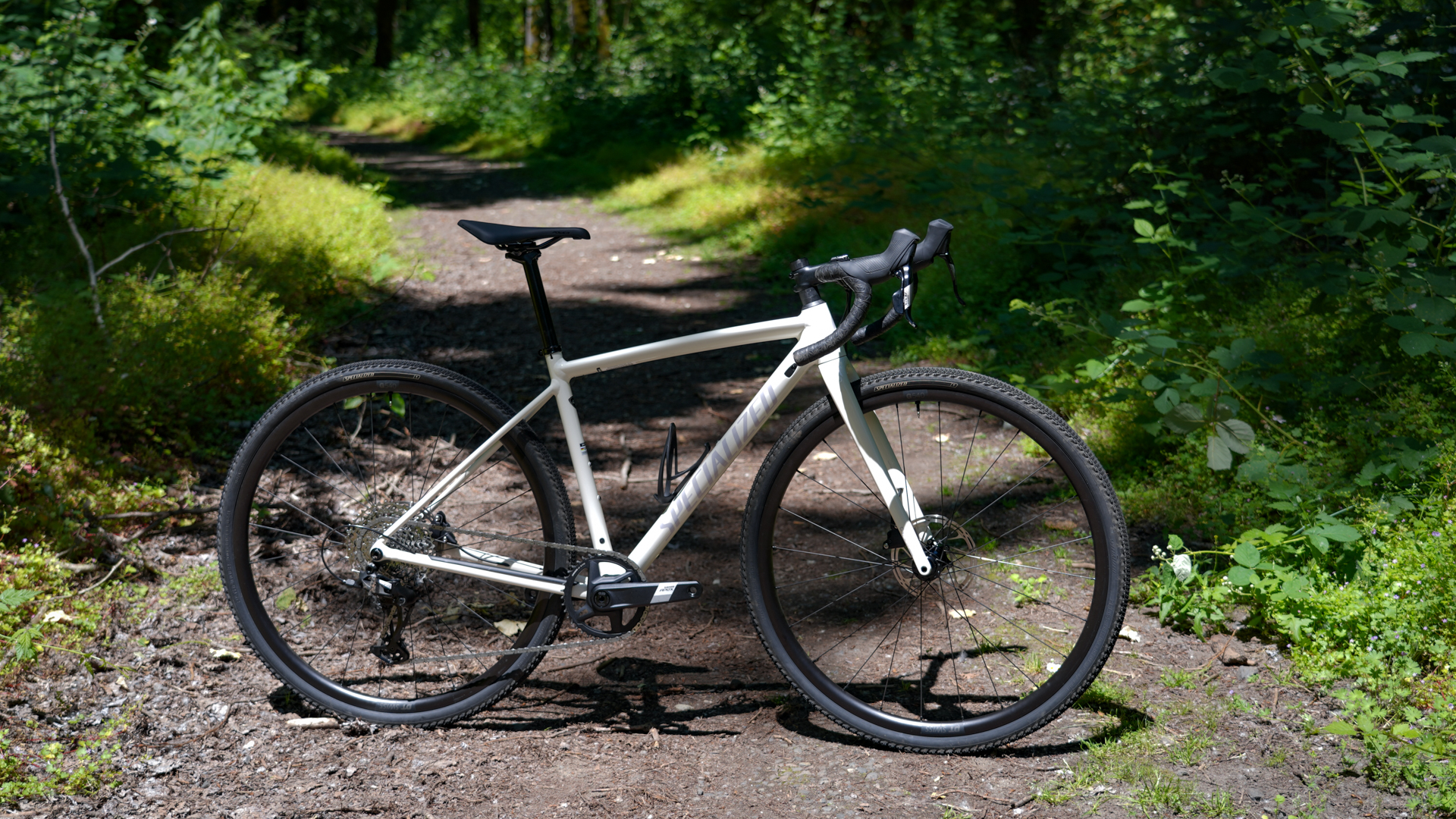
Another beautiful example of trickledown technology, the Crux DSW is responsive, versatile, fun and affordable. It's a performance orientated yet wallet-friendly option for anyone wanting one bike to tackle road and gravel alike, and maybe some ‘cross in the fall.
-
+
Versatile
-
+
Lightweight
-
+
Fun, responsive and capable
-
+
Good n-1 option
-
+
Frameset-only option
-
-
Just one, low-end build on offer
-
-
Limited sizing for smaller riders
You can trust Cycling Weekly.

The all-new Specialized Crux DSW is a bike I've been looking forward to riding since I heard of its impending release. I realise that this may come as a surprise given the five-figure bikes that I've had the pleasure of reviewing this year, but it's true.
I've owned the high-end S-Works version of the Crux for a while now. It's a fantastic bike - one that's carried me across weekend adventures, long-endurance events and short but high-intensity jaunts alike. On the road, on gravel, and even on some singletrack, the S-Works Crux rides, as my colleague Hannah Bussey described it, like poetry in motion. But it's also well out of many people's price range. The lowest model carbon Crux comes with a price tag of four grant and my S-Works version? Well, I'm just glad I was able to score an industry discount on a frameset.
Now, this new Crux DSW is a perfect carbon copy –errr, aluminium copy– of the latest carbon Crux. Another beautiful example of trickledown technology, the Crux DSW frame is made using Specialized's patented D'Aluisio Smart Weld (DSW) but offers the same performance-oriented geometry, 47mm tyre clearance and Fact12r carbon fork as its carbon siblings —all at a wallet-friendly price.
Meet the Specialized Crux DSW
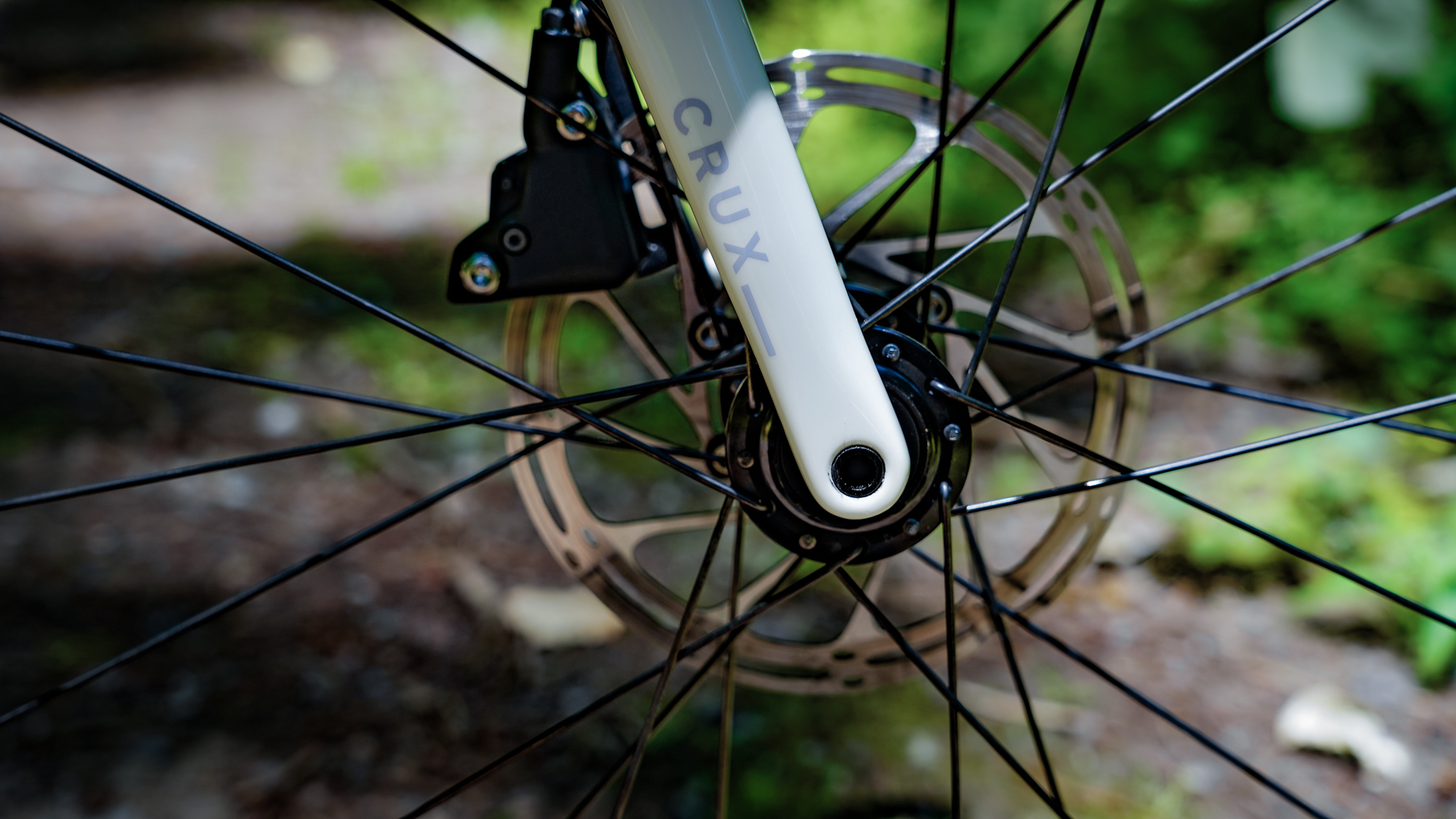
In true Specialized fashion, the Crux DSW announcement came with a host of superlatives. The American giant boasts that the new Crux DSW is the lightest alloy gravel bike ever made, tipping the scales at 9.37 kg for a fully built 56cm bike. Specialized also calls it "the most capable, nimble, balanced, and responsive alloy gravel bike ever made."
That's a lot of claims, so let's break them down.
Lightest:
The Crux frame has a claimed weight of just 1399 grams and is paired with a Specialized's Fact12r Crux carbon fork as used on the carbon models.
The latest race content, interviews, features, reviews and expert buying guides, direct to your inbox!
My 49cm test bike, ready to ride and complete with a water bottle cage, weighed in at 9.2kg.
Most capable:
By capable, Specialized means tyre clearance. Like its carbon sibling, the Crux DSW sports a generous tyre clearance well beyond its cyclocross roots (where 33mm tyres remain the UCI limit). The Crux DSW can handily fit 700 x 47mm tires or 2.1" on a 650b wheel.
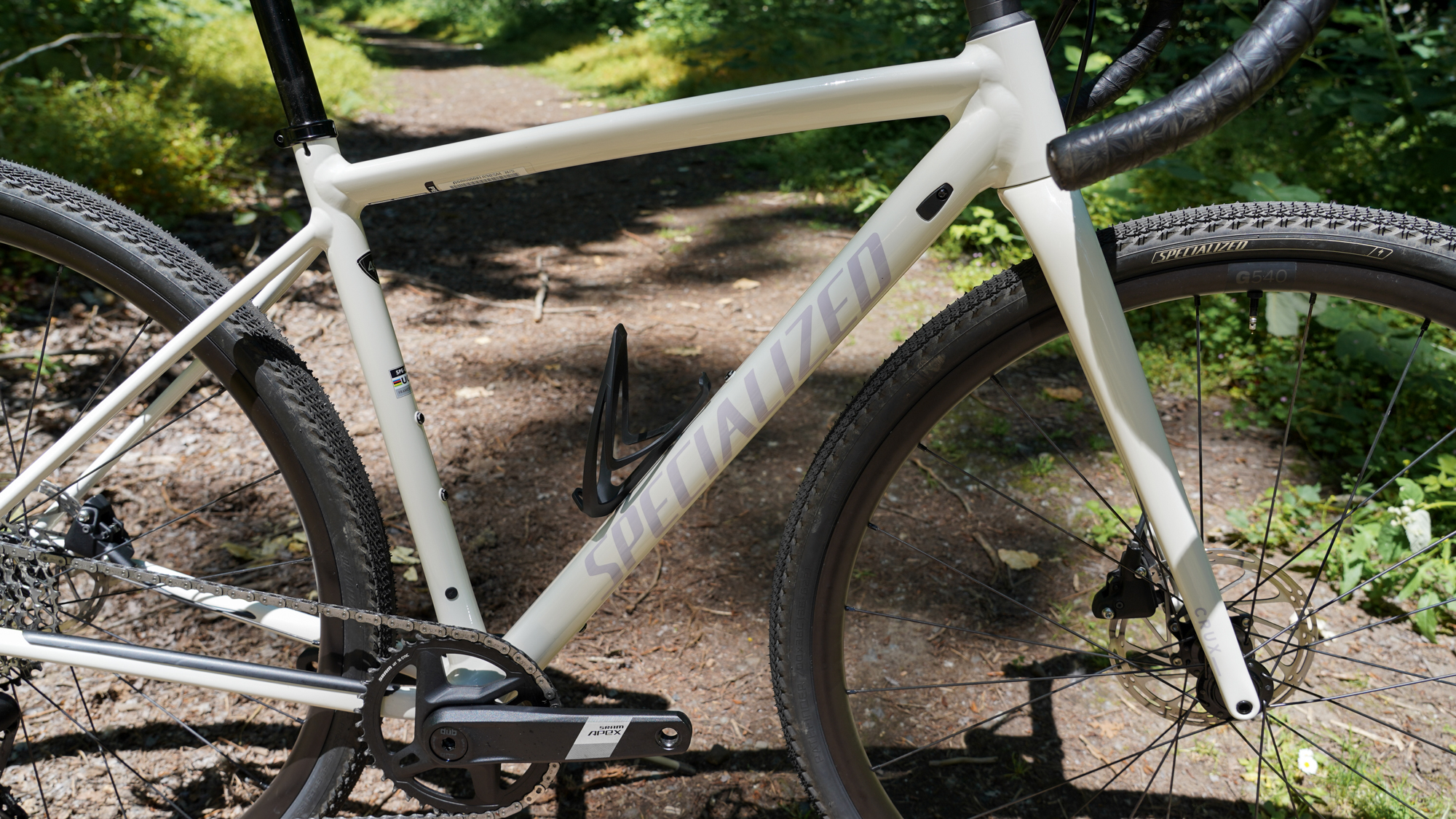
Most nimble, balanced and responsive:
How a bike handles is the result of the geometry, material, wheel size, tyre choice and overall design. Specialized used the tried-and-true performance-oriented geometry of the carbon version and applied it to the DSW. Compared to other cyclocross bikes, the Crux sports a lower bottom bracket, higher stack and longer reach. But compared to Specialized's dedicated gravel bike, the Diverge, the stack height is actually lower for a more aggressive riding position.
"A longer reach delivers better weight distribution for quick, confident handling, while a lower stack creates a performance-first position. At 72mm of bottom-bracket drop, we hit the sweet spot between nimble and stable," says Specialized.
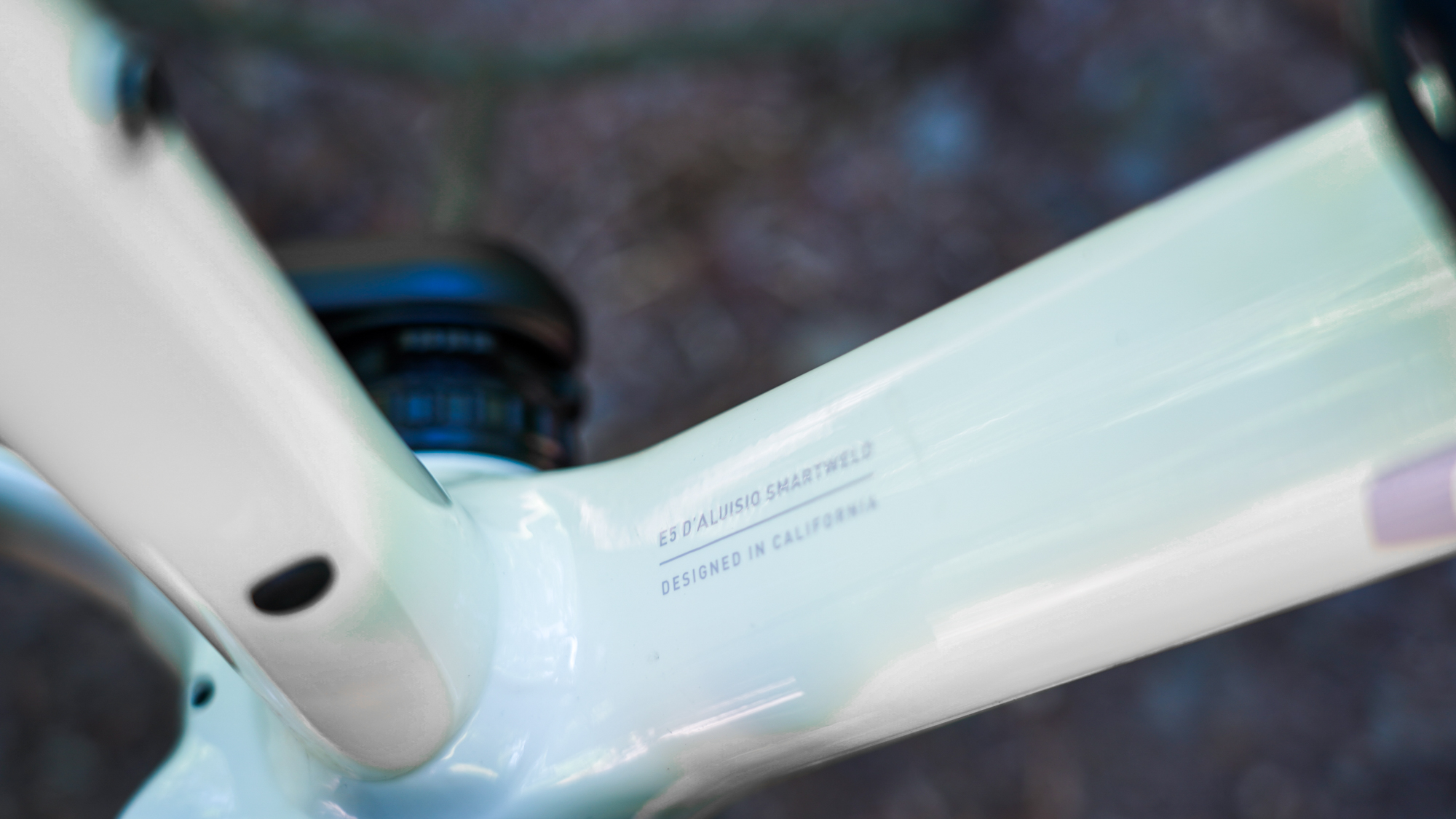
The DSW technology was named after Chris D'Aluisio, a longtime innovator whose handiwork can be seen in everything from the Cannondale Lefty to the Venge, the Tarmac and Specialized's Suspend the Rider project. The D'Aluisio Smart Weld is an engineering process that uses hydroforming to perfectly match tubes to one another without relying on mitering or excess material to fill gaps. Specialized says this technology not only creates a stronger weld but also delivers a lighter end product as it requires less material. As we've seen in DSW products like the Allez Sprint, the Crux DSW sports a unique one-piece bottom bracket and downtube, which is said to provide stability and efficiency.
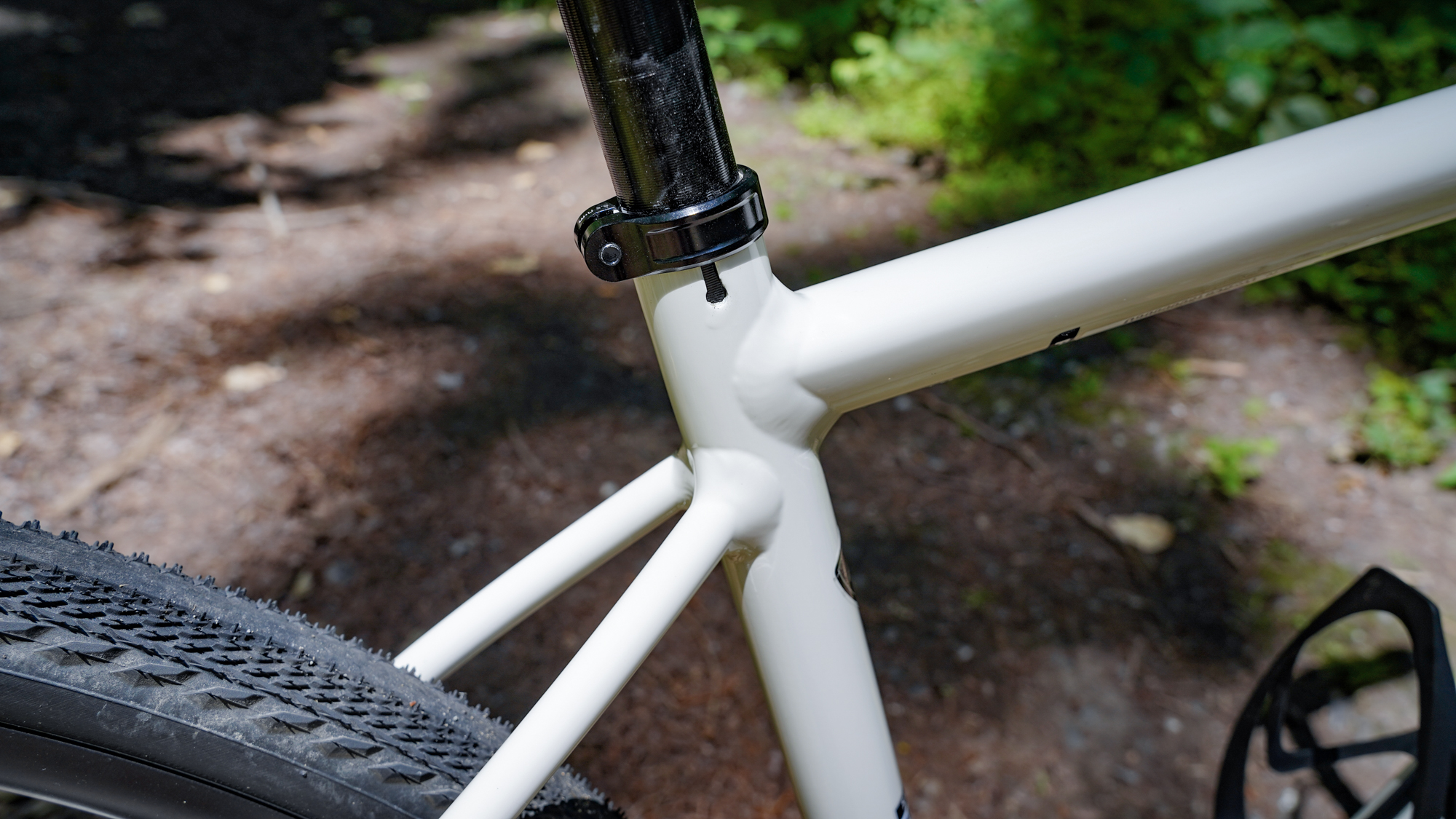
Most affordable, too?
Yes and no. There are certainly more affordable alloy bikes on the market but at $2500 / £2,300 for the complete build (as reviewed here), it is the most affordable Crux in the Specialized line-up. The Crux DSW will also be sold as a frameset for $1700/ £1500.
The Specialized Crux DSW Comp - Specs
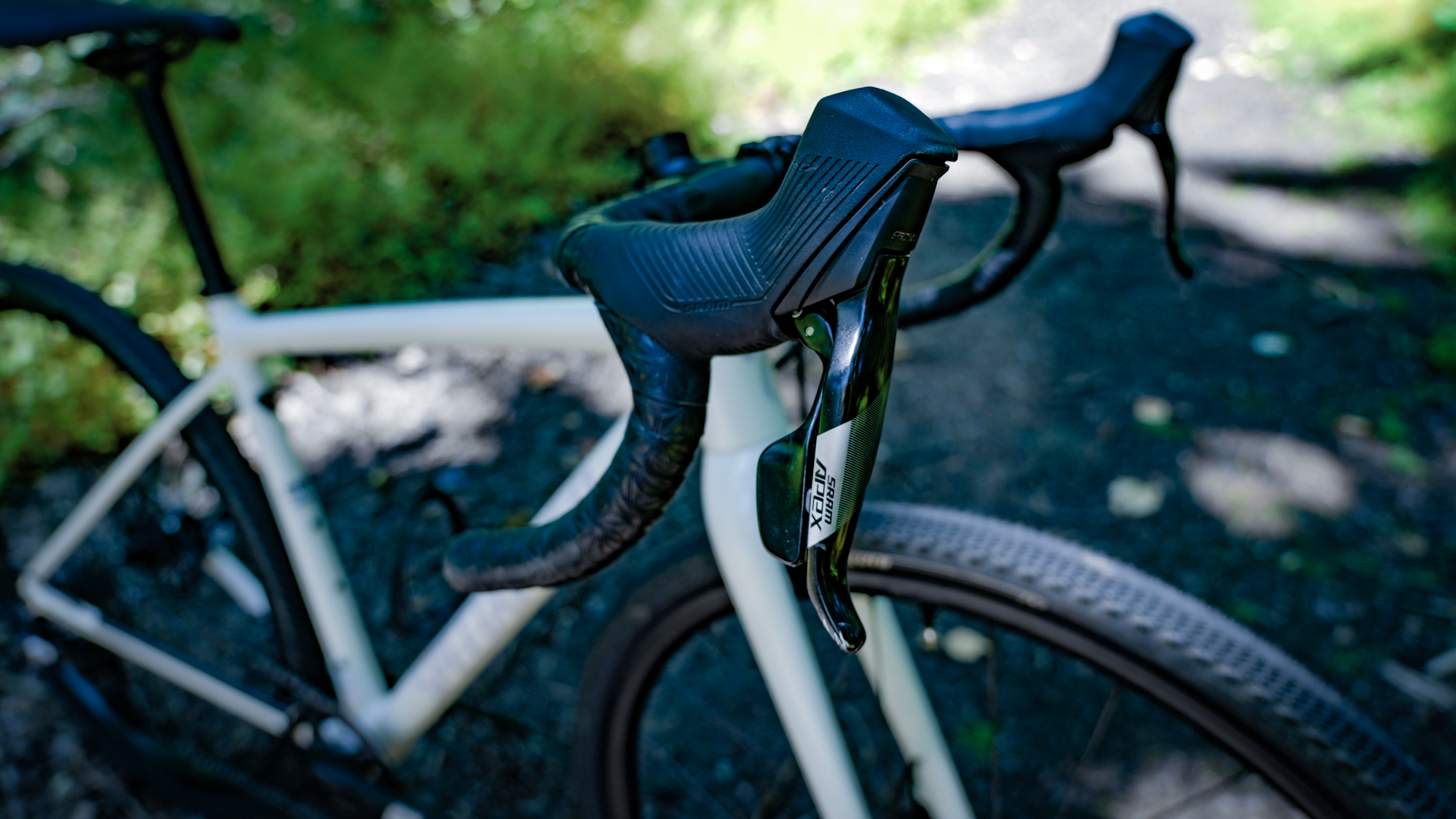
- Crux DSW frame with Fact carbon gravel fork
- SRAM Apex XPLR 12-speed mechanical groupset
- Gearing: 1x 40t crankset paired with an 11-44 cassette
- Finishing kit: a collection of Specialized's own alloy stem, handlebars and seatpost
- DT Swiss G540 Aluminum Gravel Wheels
- Saddle: Body Geometry Power Sport, steel rails
- 700 x 38mm 2Bliss ready Pathfinder Pro tyres
- Colorways: Birch/Clay or Satin Smoke/Oak Green
- Price: $2500 / £2,300
The Ride
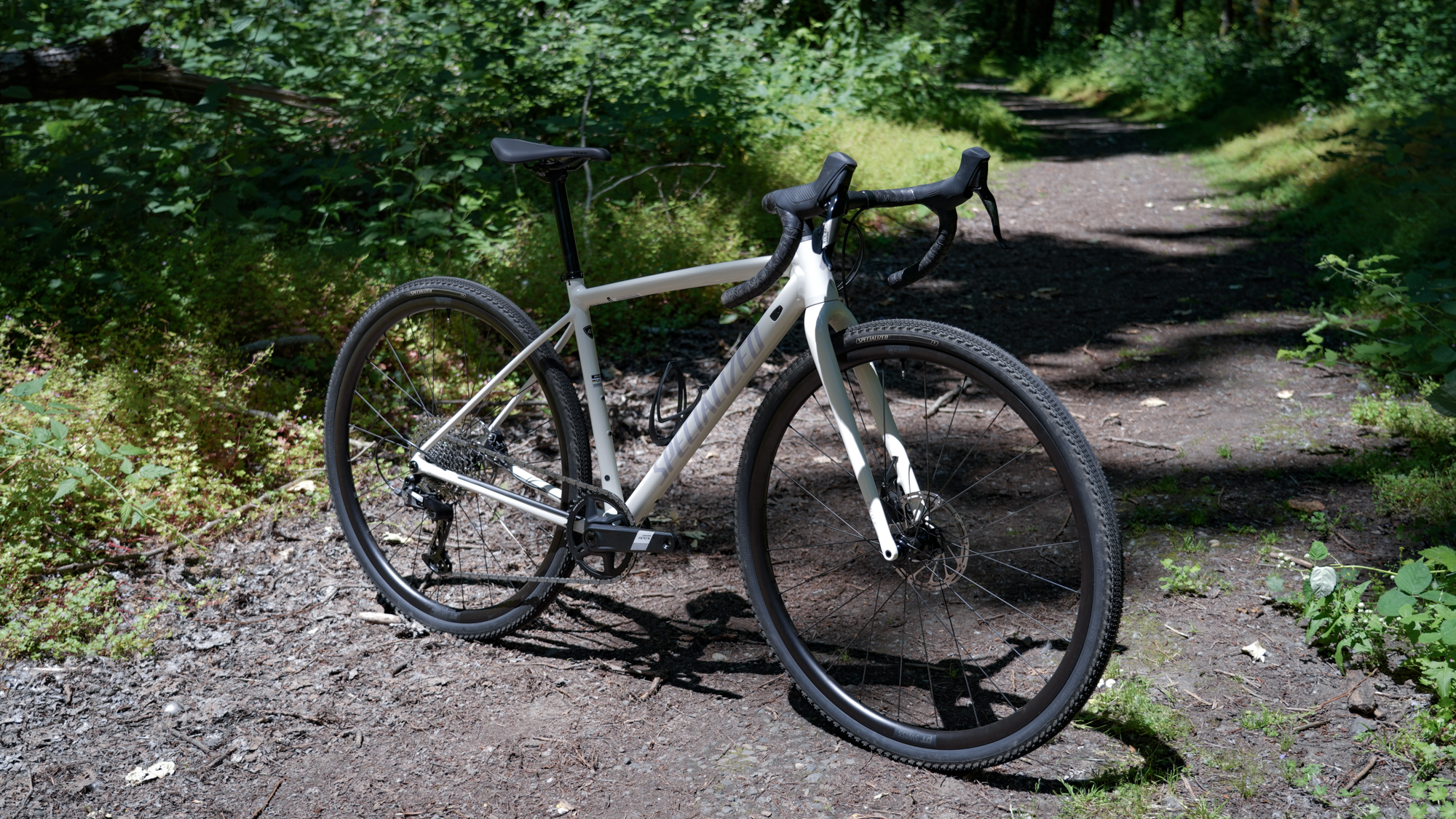
My poking at Specialized's penchant for using superlatives aside, the Crux DSW really is a joy to ride.
Having ridden its carbon sibling for so long, I felt right at home on the familiar geometry. It's perhaps a tad aggressive compared to an endurance gravel bike but since the Crux moonlights as a cyclocross racer, it's pretty well-accommodating for both use cases. Plus, Specialized knows to leave plenty of steerer tube length for those looking for a more upright position. With that said, I'm 5'5" (1.67) and I ride the smallest frameset available, the 49cm. In Specialized's efforts to make the Crux experience accessible to more riders, I would have liked to have seen the addition of a smaller frameset.
I took the DSW on all my usual routes, subjecting it to plenty of climbs, rough gravel, smooth tarmac and some rooty singletracks. I rode in a fast group setting as well as solo. Throughout it all, I never truly felt hampered by the change in frame material, especially once the pavement turned to gravel. The bike felt noticeably responsive, especially on punchy, out-of-the-saddle climbs. Sure, the bike is heavier than my own S-Works version, but aluminium is so good these days. The DSW is plenty fast and its capability inspires confidence, letting me throw it into tight corners and down chattery descents without hesitation.
The carbon fork goes a long way in keeping the bike's weight down and the vibration and bumps from angering the body. For longer-distance events, however, I would suggest switching to a carbon seatpost or even a dampening seatpost like the Ergon All-Road Carbon Leafspring seatpost for some added vibration support.
Perhaps the bike's biggest limiter is the DT Swiss G540 wheelset paired with SRAM's heaviest 10-44t cassette. The rear wheel, complete with cassette and tyre, weighed in at around 2.3kg. That's at least 320 grams more than the frameset itself. Once I swapped the aluminium DT Swiss G540 hoops for a set of Roval Terra CLXs with a SRAM Force XPLR cassette, the bike really came alive, showing me what it could do with a higher-end build.
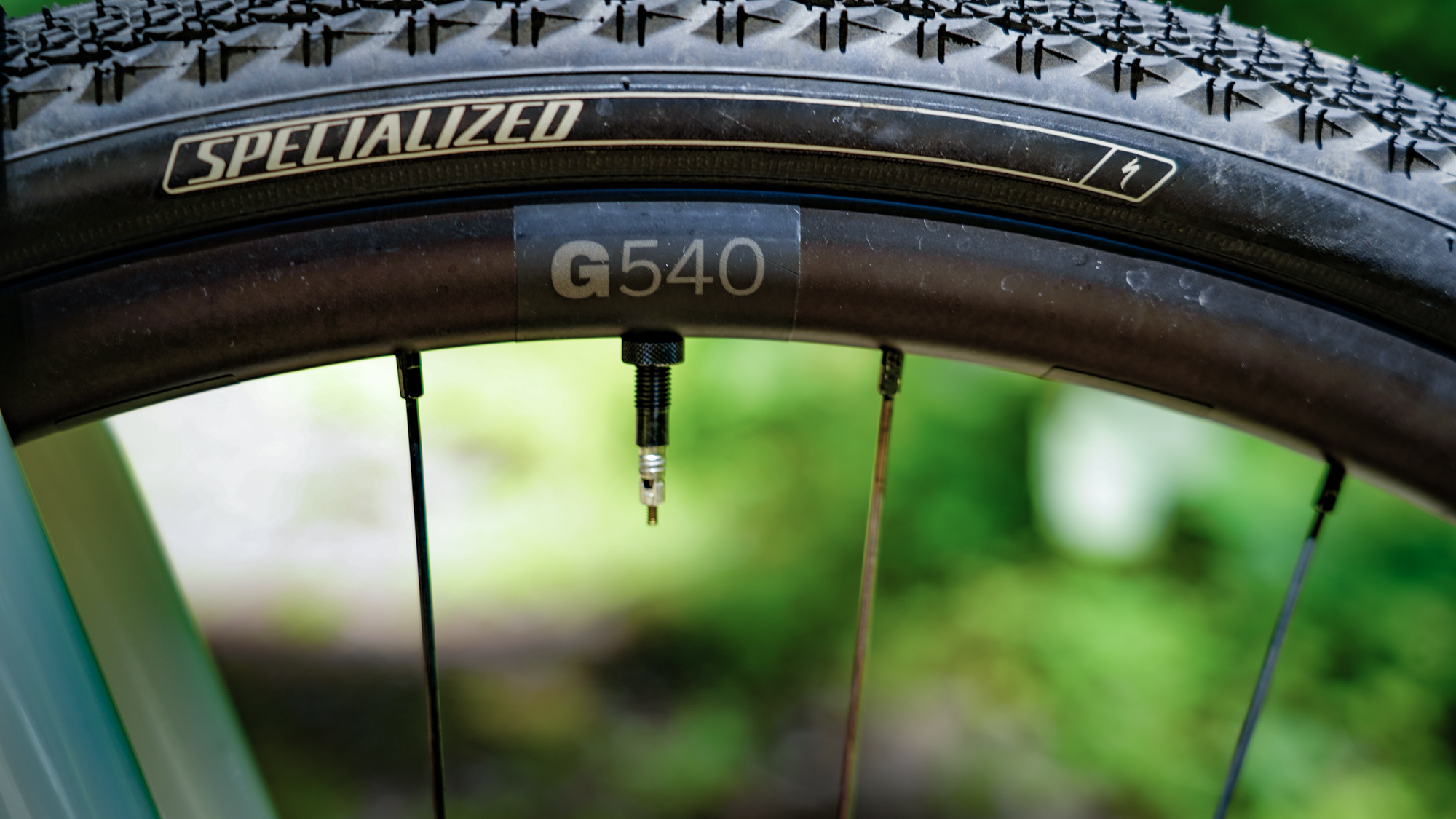
While the 12-speed SRAM Apex XPLR mechanical groupset is capable, I would have preferred to see a build featuring the electronic Apex XPLR AXS groupset. When asked about the choice to go mechanical, Specialized said: "We expect many riders to build Crux DSW framesets using electronic drivetrains. For Crux DSW Comp, Apex mechanical XPLR is a great groupset that brings excellent drivetrain and braking performance to many riders."
For the Crux DSW, Specialized is offering just one complete bike build in two colorways. The frameset has three colorway options, and Specialized expects many to opt for the build-your-own approach, which, honestly, is what I would do.
I've long been of the opinion that a good aluminium frame with a quality build can rival a carbon frame with a lesser build. Save your pennies on the frameset and spend it on a nice wheelset instead. This frameset with some decent hoops and the SRAM Rival or Apex AXS gruppo would be a killer steed for anyone wanting one bike to tackle road and gravel alike, and maybe some 'cross in the fall.
Value and Verdict
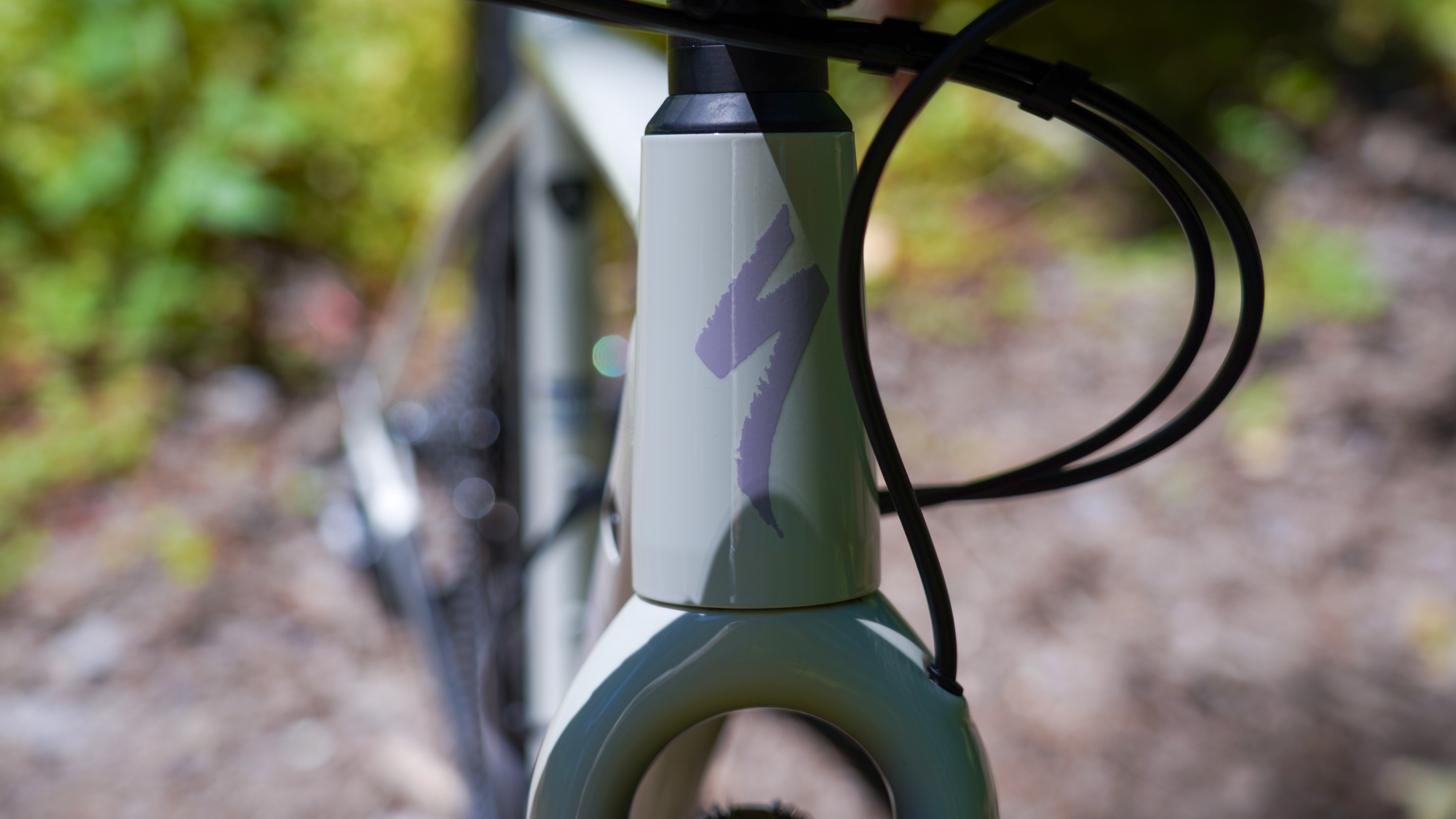
The $1700/£1500 price tag for the Crux DSW frameset feels a little spendy when you can get a fully built Checkpoint ALR 4 for around that money, but it's in line with Specialized's other alloy frameset options. The full build at $2500 / £2,300 feels fair – right in line with the Giant Revolt 3 or Cannondale's Alloy Topstone 1.
I fell in love with the latest Crux in its S-Works version, but the DSW is equally impressive within its category. It lives up to the expectations set on a brand that makes an alloy superbike. The Crux DSW is a remarkably lightweight alloy steed that offers a lively yet stable ride. Its strength lies in its true versatility. Few lower-end bikes are this fun to ride across varied terrain. If you're looking for a gravel bike that won't hold you back on the road or cyclocross course without breaking the bank, the Crux DSW is for you.
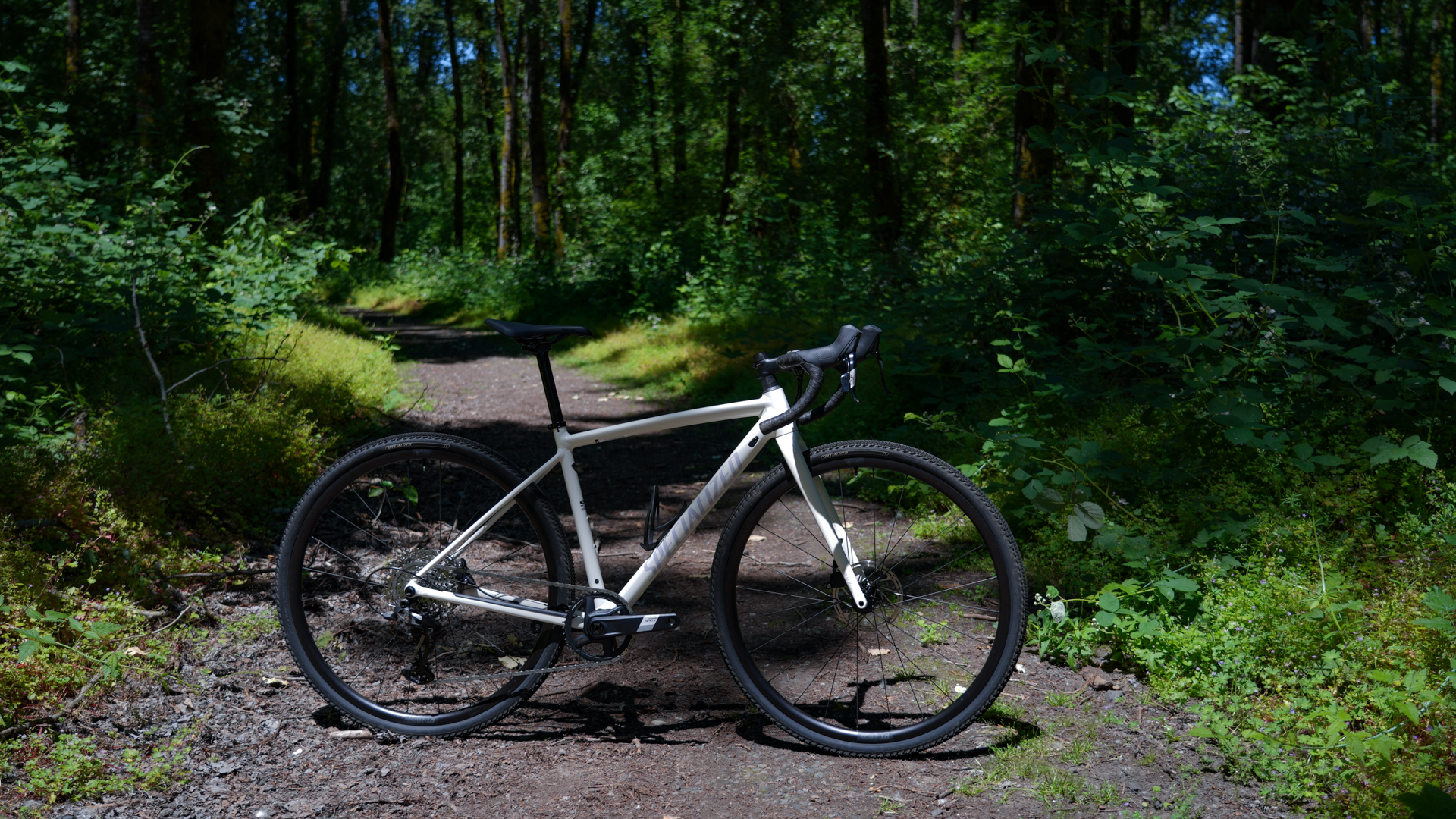
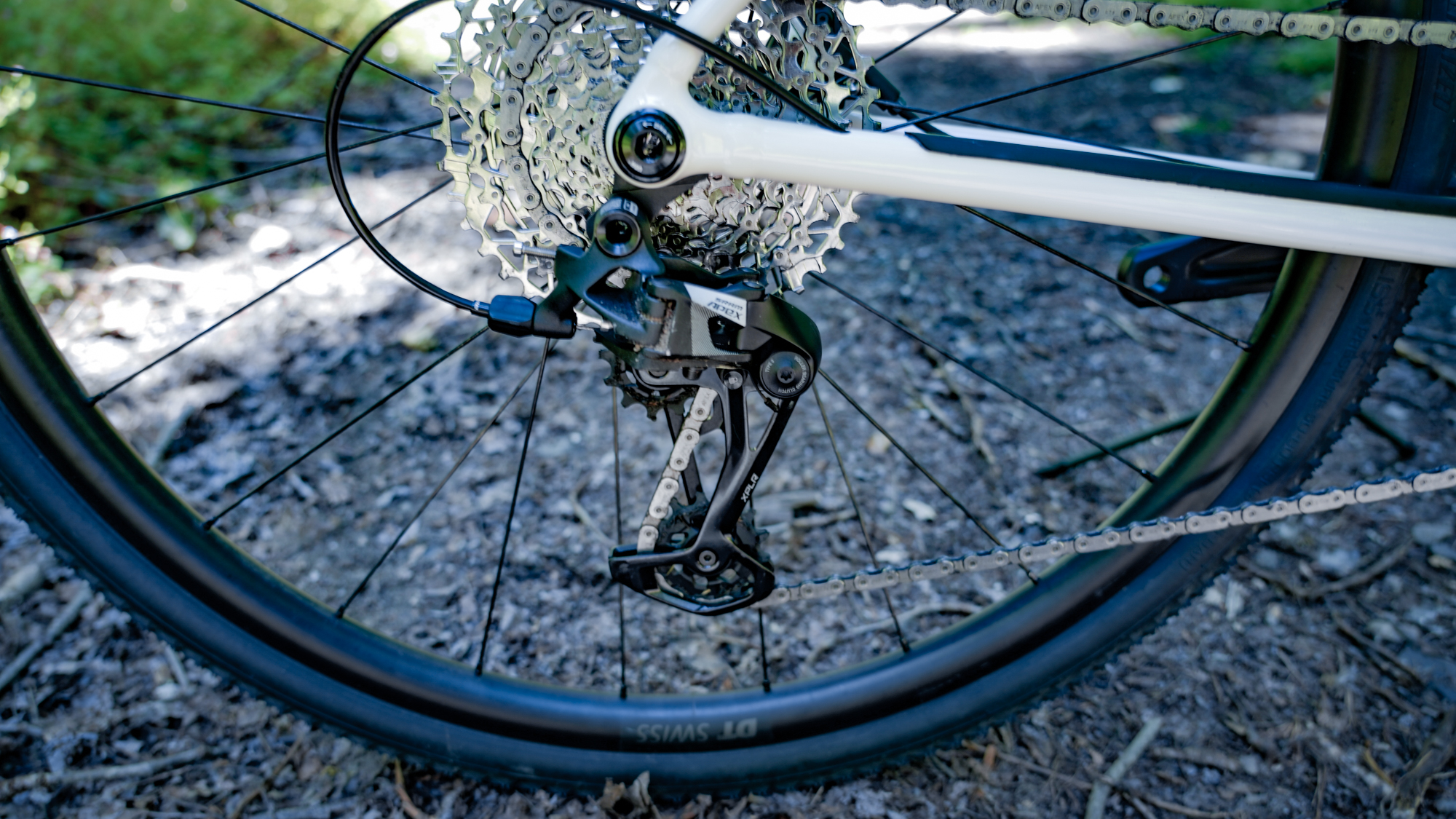
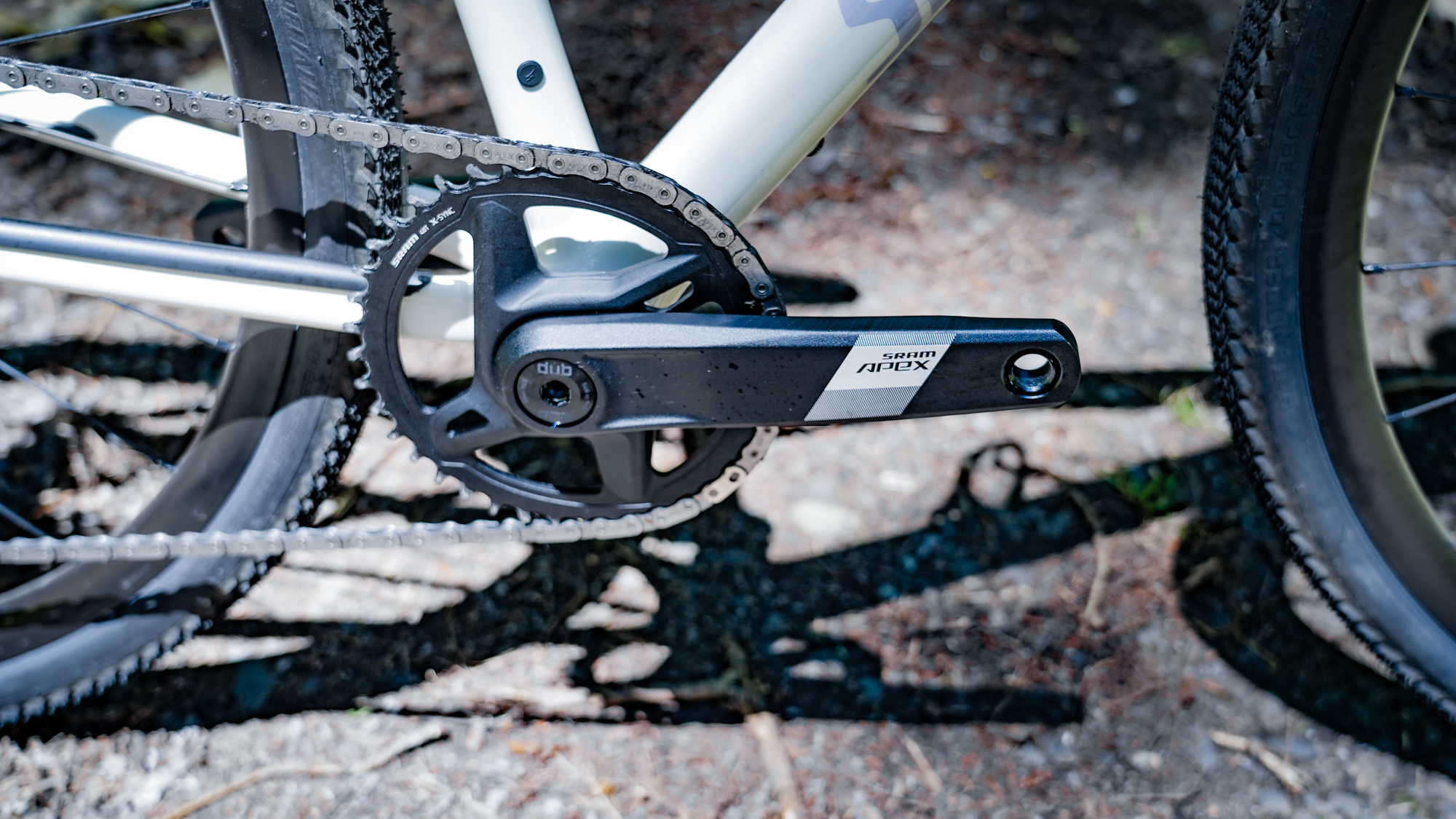
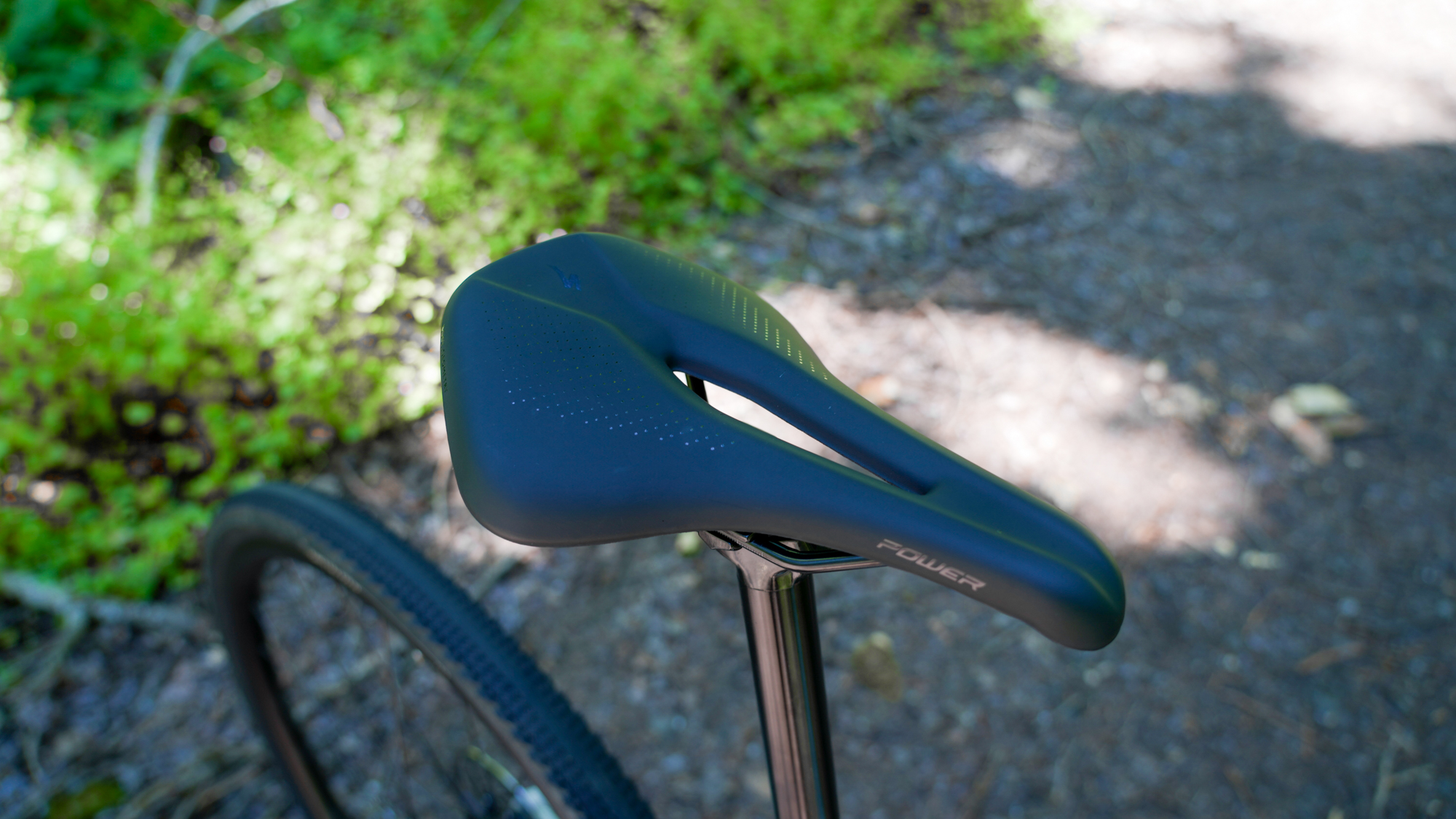
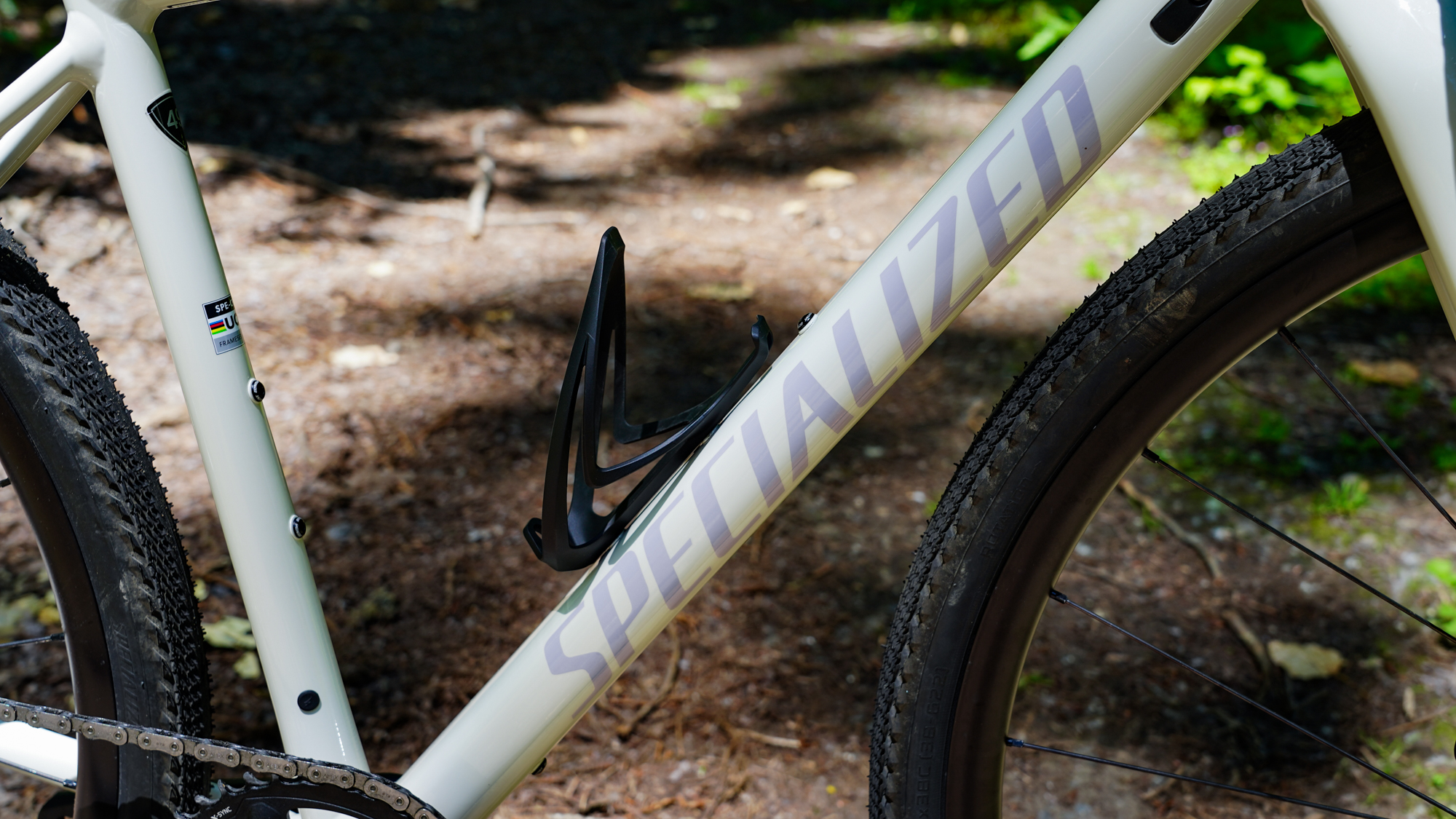
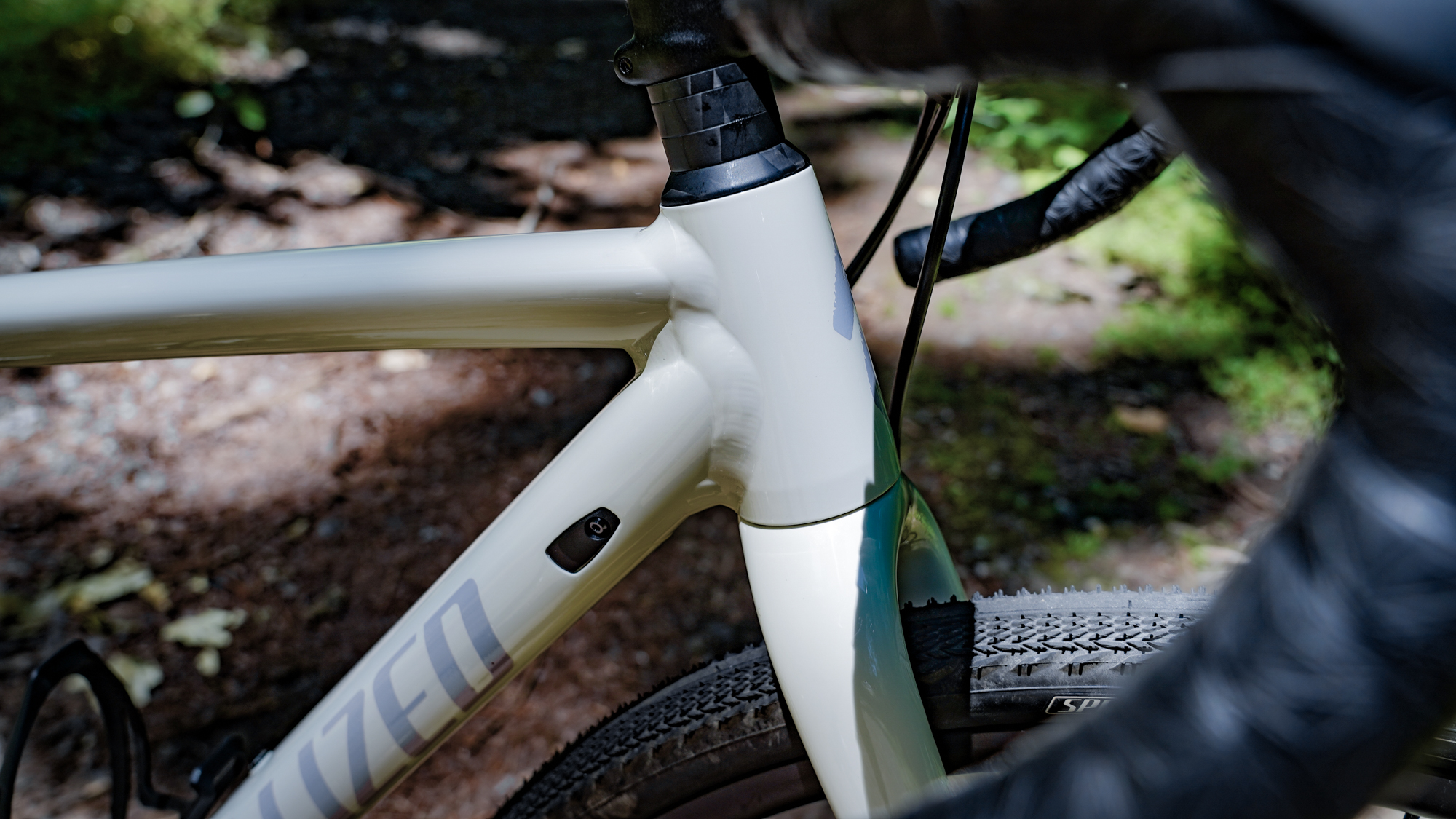
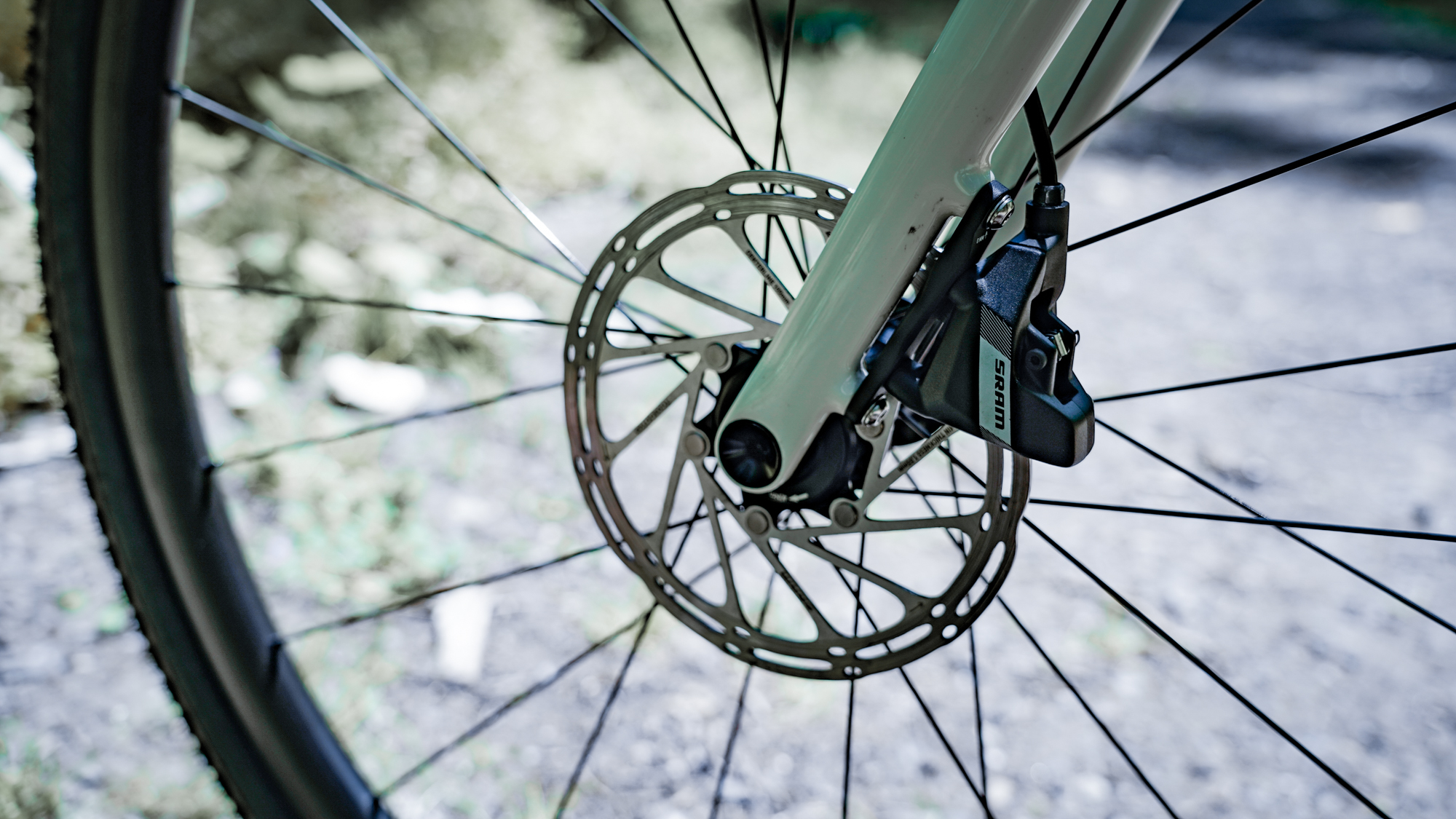

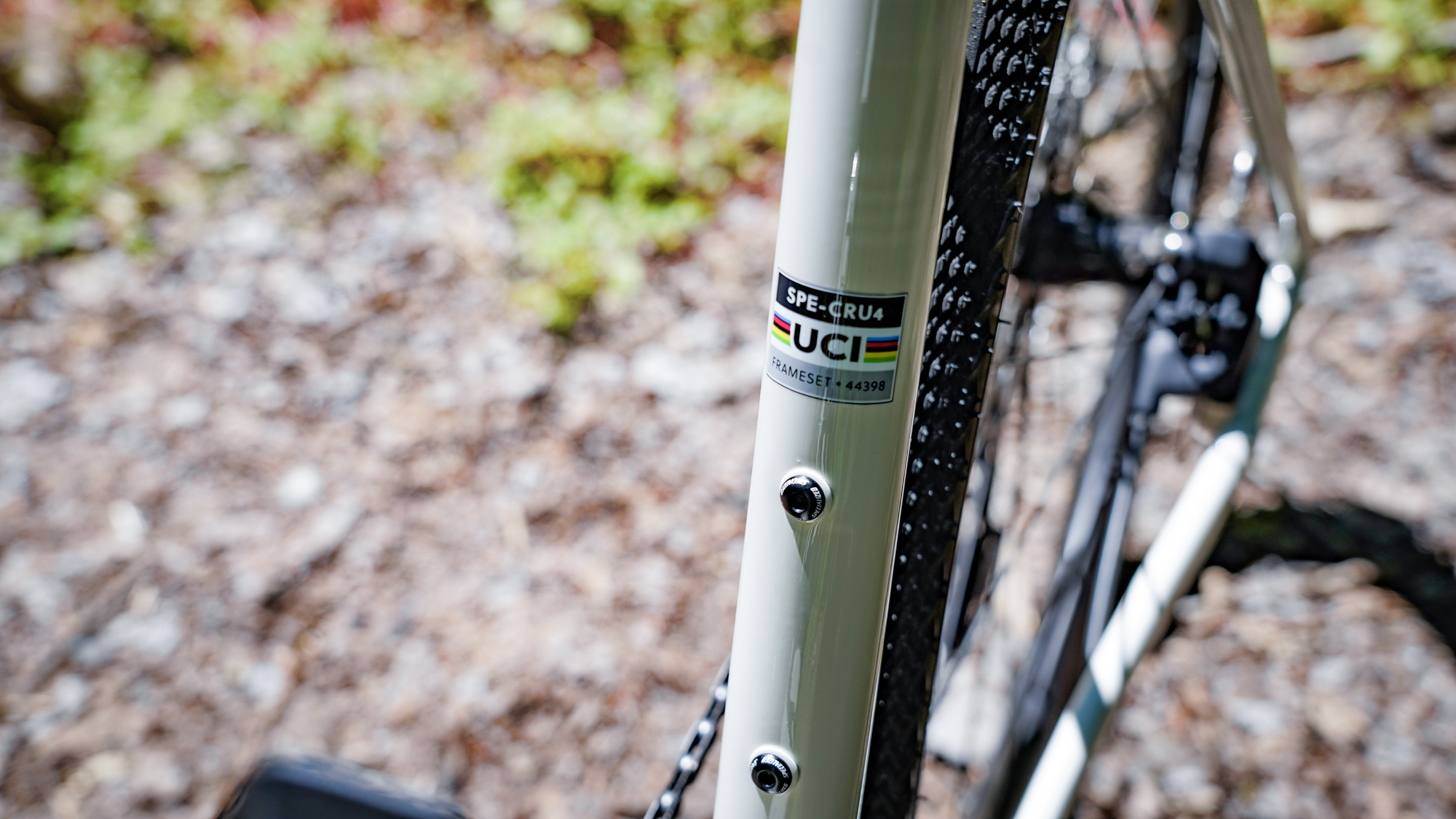

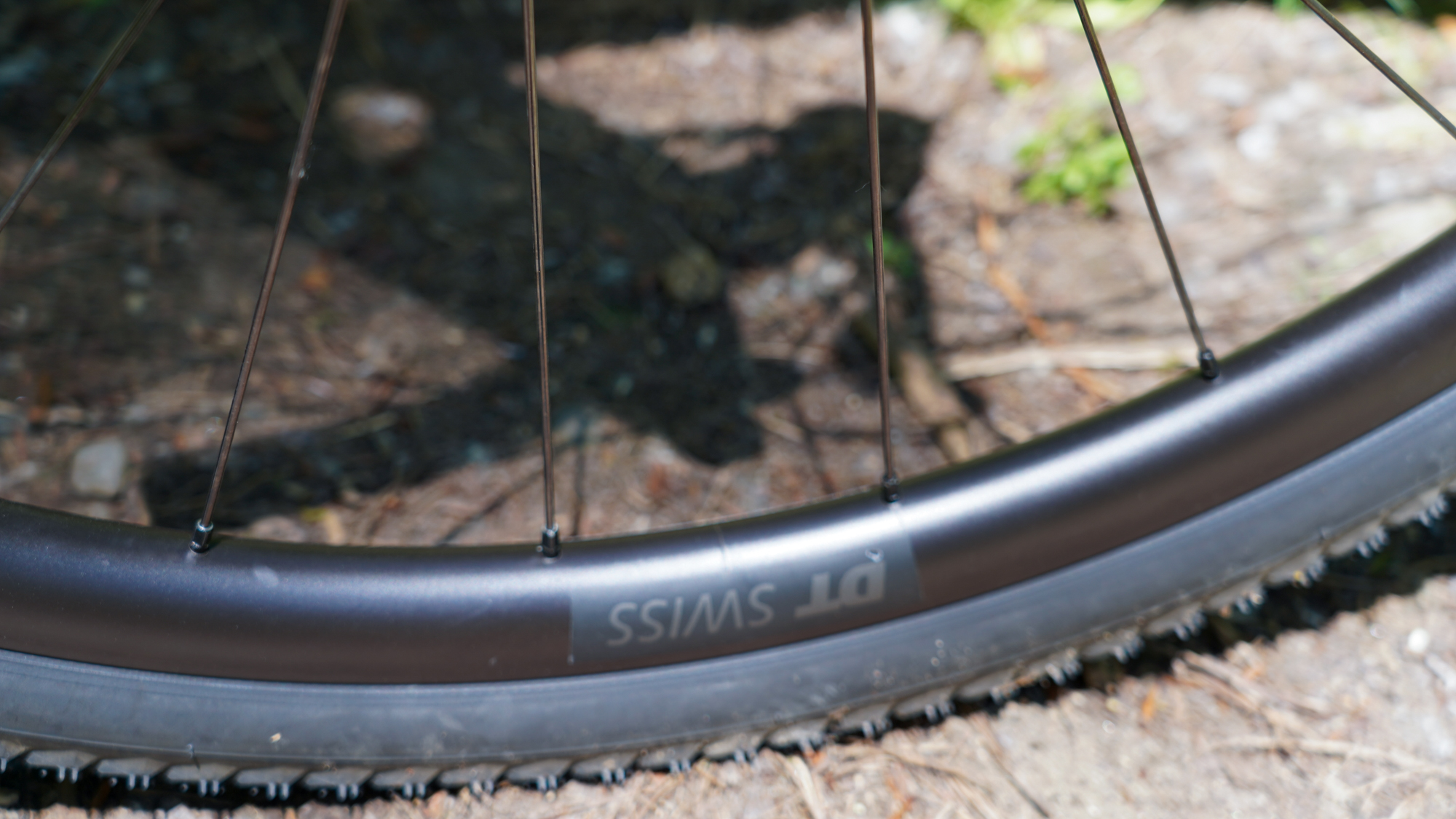

Cycling Weekly's North American Editor, Anne-Marije Rook is old school. She holds a degree in journalism and started out as a newspaper reporter — in print! She can even be seen bringing a pen and notepad to the press conference.
Originally from the Netherlands, she grew up a bike commuter and didn't find bike racing until her early twenties when living in Seattle, Washington. Strengthened by the many miles spent darting around Seattle's hilly streets on a steel single speed, Rook's progression in the sport was a quick one. As she competed at the elite level, her journalism career followed, and soon, she became a full-time cycling journalist. She's now been a journalist for two decades, including 12 years in cycling.